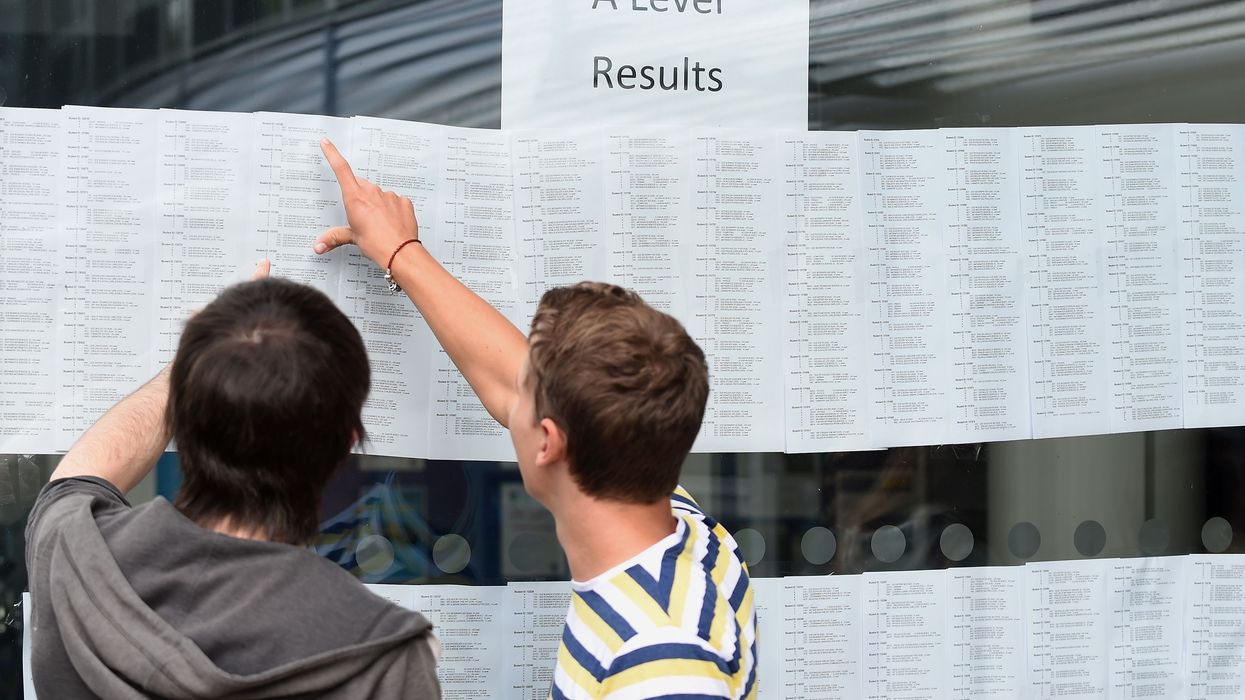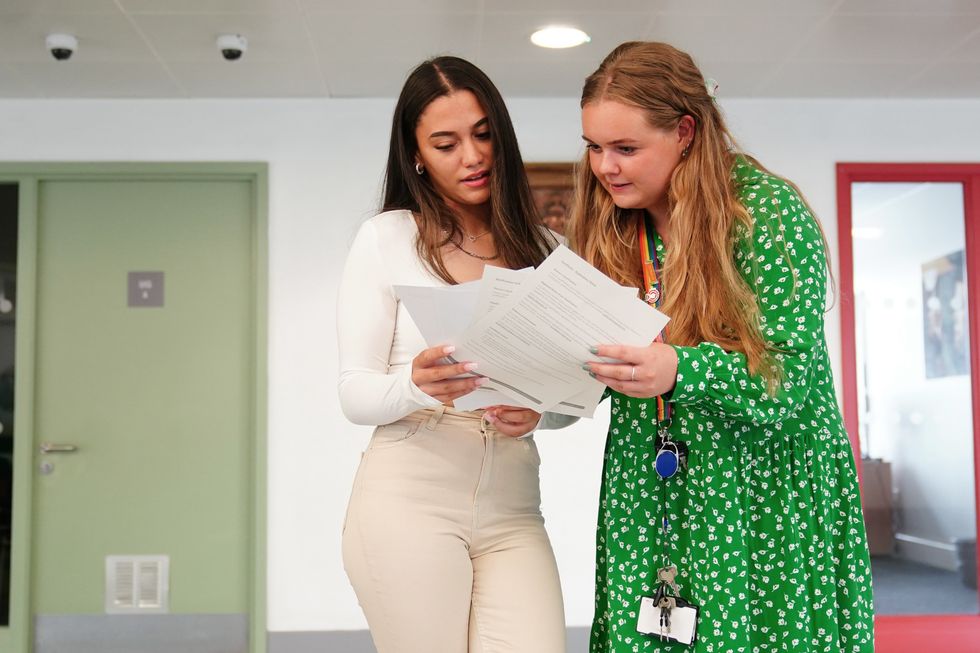A-level results plunge as Covid lockdown impact on young people continues

The school leavers receiving their results this morning are those whose GCSEs were affected by Covid in 2021.
| PA
The number of students accepted into Univeristy has fallen by 2.6 per cent
Don't Miss
Most Read
Latest
A-level results have dropped this year as students’ exams have been marked harsher in comparison to the Covid years.
The total number of students accepted on to UK degree courses has fallen 2.6 per cent on the same point last year, with 414,940 taking up places so far, initial Ucas figures released this morning show.
The grade drop comes after officials introduced tougher boundaries this year, reverting back to the pre-pandemic days.
The school leavers receiving their results this morning are those whose GCSEs were affected by Covid in 2021.
Tom Haywood Pope from Zero Gravity
After their exams were cancelled, their GCSE grades were awarded by teachers instead.
These students excelled in their results, with a record-breaking 30 per cent of those entries receiving top 7s, 8s and 9s grades.
This led to more students gaining the necessary GCSE grades needed to take A-Levels in subjects, who might not have normally done so in years prior.
Exam boards were more lenient in the past couple of years to reflect the stressful learning environment brought about because of Covid, with many hours lost and classes being taught virtually.
However, now the generous grading of the covid years has now been replaced with a policy of reverting to the pre-pandemic levels of 2019.
The boom in school-leavers waiting for results, coupled with plenty of places offered to international students, means that the fight for a university spot has been extremely tough.
GB News spoke with Tom Haywood-Pope from Zero Gravity, an educational charity focusing on placing school leavers into University and the workplace. He spoke of the difficulties the sixth-formers have faced.
"It’s a bit of a perfect storm for students getting results today because they are pandemic affected year group, they’re taking exams for the first time ever and they’ve had teacher strikes plus the cost-of-living crisis, all of these things impacting on student’s outcomes."
He shared the findings of a report that Zero Gravity ran, which showed that state educated students are four times more likely to give up a place at university than their privately educated peers.
"This means that not only are fewer state educated students going to university, but it also means that they face more challenges when they’re there," he explained.
Experts at the FFT Datalab education consultancy has said the pandemic has disproportionately affected disadvantaged students.

Exam boards were more lenient in the past couple of years to reflect the stressful learning environment brought about because of Covid, with many hours lost and classes being taught virtually
|PA
The drop in grades from students aided by the pandemic grading leniency was speculated beforehand by experts.
“We don’t have the figures yet but these unusual circumstances might well mean that a higher proportion of disadvantaged pupils went on to enter A-levels this year than in a typical year,” Natasha Plaister, a statistician at FFT Datalab, said.
In 2021, 44.3 per cent of A-level entries received As or A*s. In comparison, in 2019, only 25.8 per cent received the top grades.
Those who have missed out on a place will need to use clearing – the system which pairs unplaced students with remaining course places.
Data from the UCAS clearing website shows that there are currently 22,521 undergraduate course vacancies in England.
Gillian Keegan, the education secretary in England, said: “I’m incredibly proud of all students receiving their results today. For many, this will have been the first set of formal exams they have ever taken, having faced unprecedented circumstances in the years building up to this summer.”
Lee Elliot Major, professor of social mobility at the University of Exeter, said today “will be the one of the most nerve-racking days in recent university admissions history”.
He added: ‘So much is at stake for so many young people who have faced such hardship and uncertainty over recent years.”










